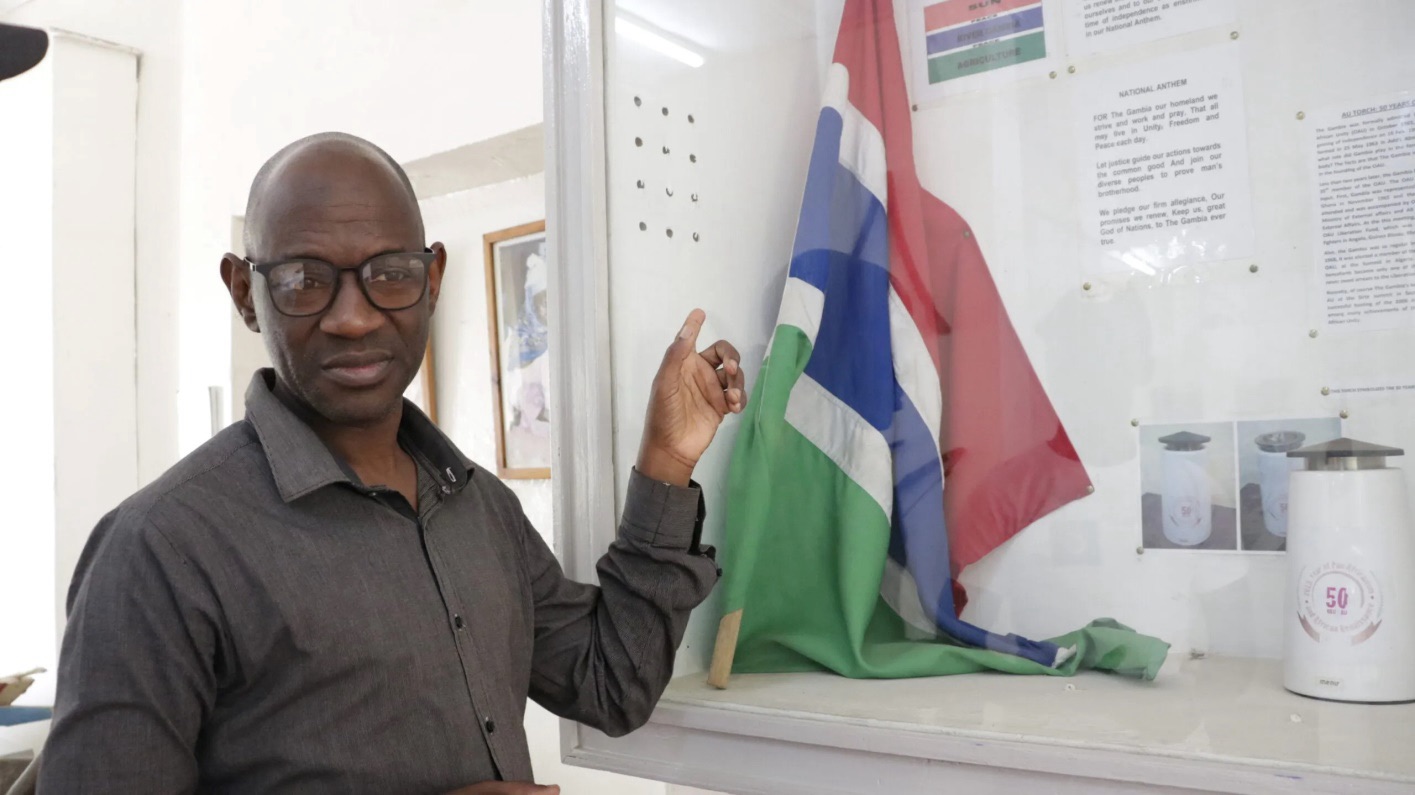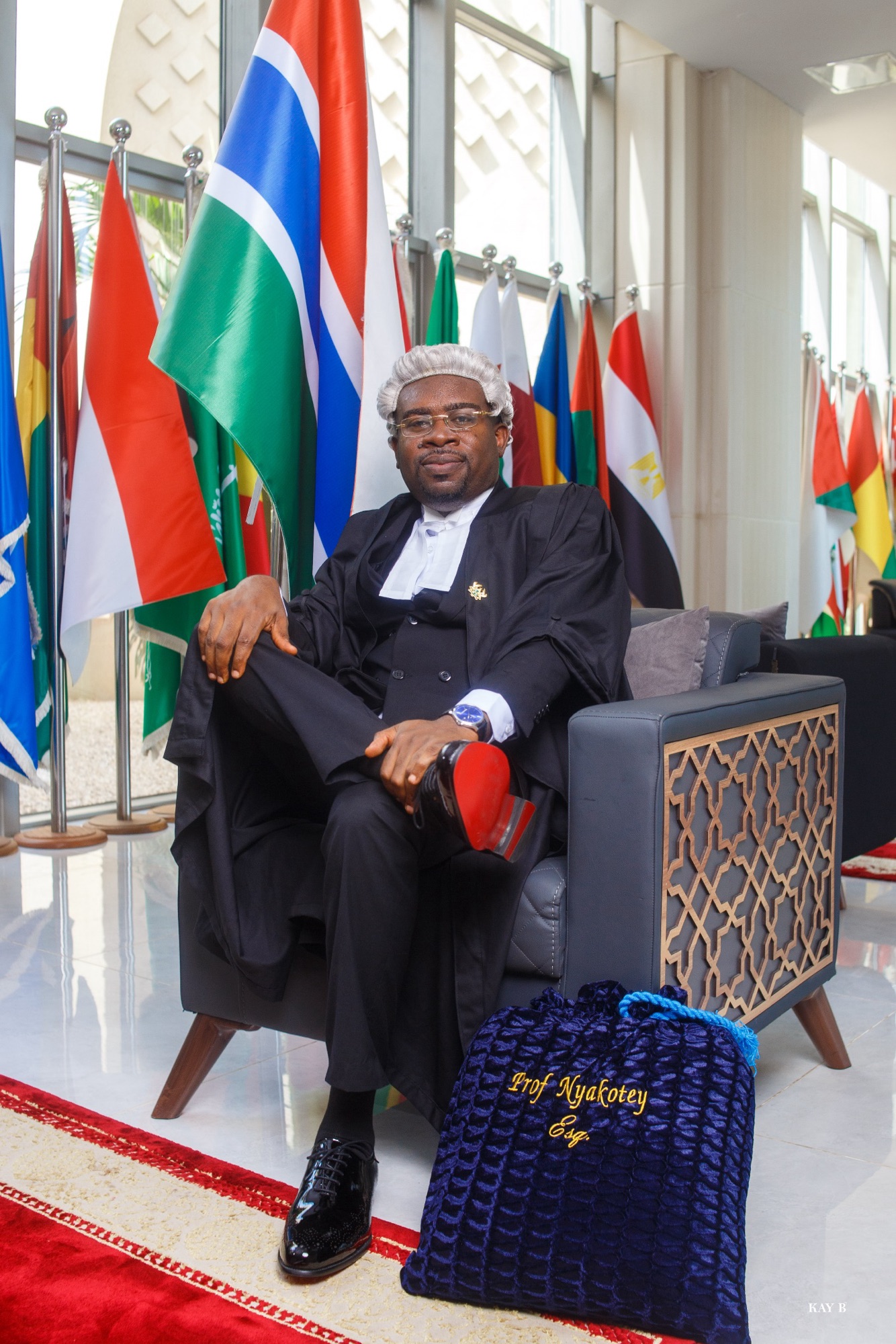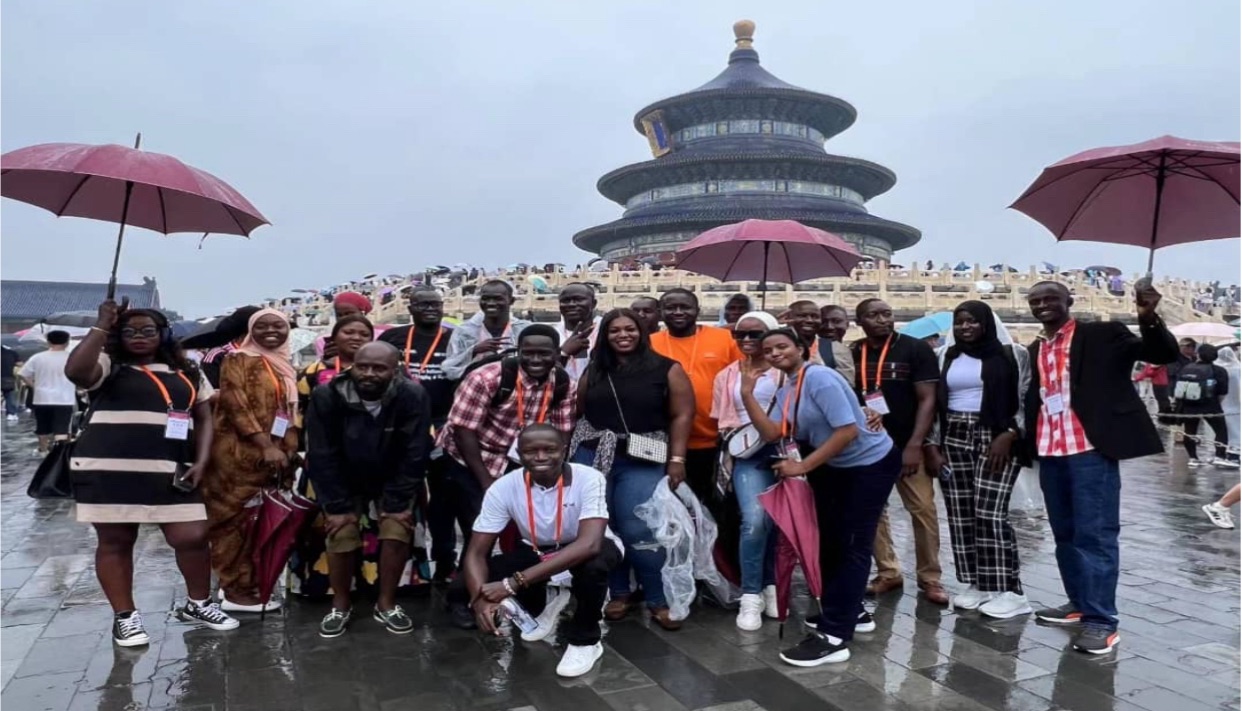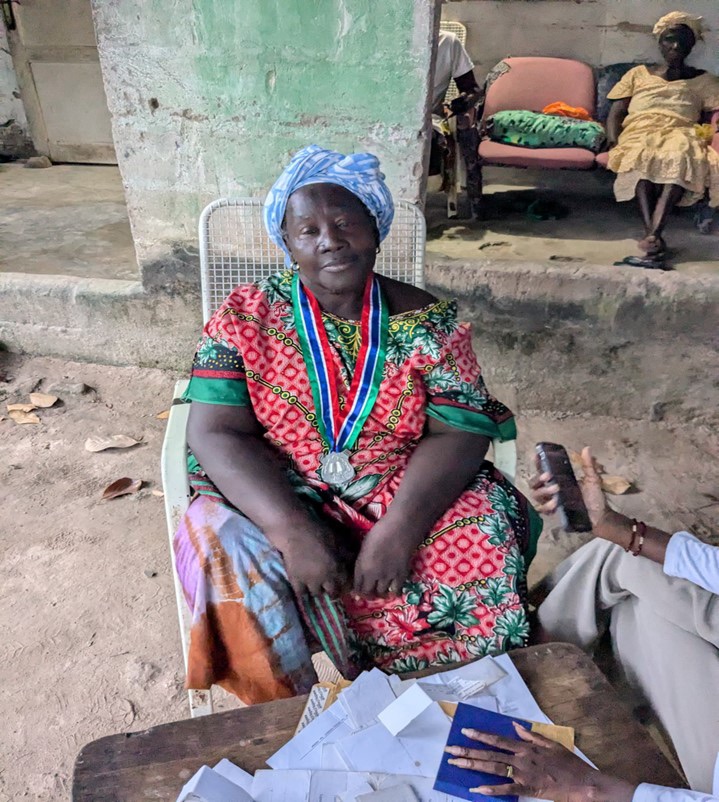By Yunus S Saliu
As one of the most fruitful and engaging years of the National Centre for Arts and Culture, with pride and joy, the Director General of the Centre has unveiled that the National Centre for Arts and Culture in 2023 registered a tremendous success.
The registered success in the year under review crosses across all the areas they engaged. As a custodian of culture, tradition heritage and as well as a beacon of creativity, cultural enrichment, and artistic eminence, the staff, board and the Centre under the Ministry of Tourism and Culture remain unshakeable without derailing from its mandate of conserving, preserving the country’s cultural heritage, fostering creativity, empowering and creating conducive stage for all the artistic associations affiliated to the Centre.
Reviewing and discussing the achievements and the inadequacies of the NCAC in 2023 cum the expectations and way forward in 2024, Hassoum Ceesay, the Director General of the National Centre for Arts and Culture (NCAC), with pride and joy enunciated that 2023 was a fruitful, very busy and engaging year for the NCAC.
The centre, he said was able to do many things to fulfill its mandate as per the NCAC Act which is to promote, protect, preserve, and interpret Gambian cultural heritage, act, and administer copyright.
However, NCAC started the year 2023 activities with the Janjanbureh Kankurang Festival, “it was successfully held in McCarthy in conjunction with our partners – EMC, GTBoard, and of course with our parent Ministry and it was the sixth edition of the festival.” This festival added value to the Kankurang Center and Museum under the NCAC which is there to to help explain the Kankurang Heritage, a UNESCO-listed Intangible Cultural Heritage element.
Soon after the festival, NCAC started the implementation of the UNESCO ASCHBERG project supported by UNESCO, The Gambia was one of the 17 countries in the world that benefited from the project meant to empower women artists and upgrade their status in The Gambia.
“We did that in three ways one, we were able to train 100 female artists on many aspects of artistic entrepreneurship including copyright, fundraising, legal matters, how to protect their works, contracts, matters, and so on. And they’re all certificated.
“Number two, we were able to work through the ASCHBERG project to elaborate the first regulation for the creation of the National Endowment Fund for the Arts, and it is now created, signed by the Minister of Tourism and Culture (MOTC), and gazetted. Now we’re working on getting money into the fund to help support Gambian artists. This is a major development.
“Thirdly, we were able to undertake the first empirical research on the role of artists in the Gambia. The research was completed and the researchers’ findings have been published. For the first time, we have a scientific study on the role of the arts in the economics of The Gambia in terms of employment, in terms of income generation,” the Director General of the Centre explained.
In 2023 also, NCAC successfully has two international conventions ratified by the National Assembly of The Gambia, they are the UNESCO 2001 Convention on the Protection of Underwater Cultural Heritage and the UNESCO 1970 Convention on the Protection of the Illicit Transfer of Cultural Objects. In November 2023, these two ratified instruments were successfully submitted in Paris to the UNESCO Secretary-General.
Presently, The Gambia has signed five out of these six UNESCO Cultural Conventions, and it is a big record in Africa “We were able to do this with the support of the UNESCO Dakar Office and our Ministry and of course with the support of the stakeholders.”
The NCAC achievements in the year continued, as the centre, again, successfully submitted the quantitative report on the UNESCO 2005 Convention on the Protection of Cultural Diversity and the UNESCO 2003 Convention on the Protection of intangible cultural heritage. Now they are up to date with all the reporting on the three UNESCO Conventions i.e. 1972, 2005, and 2011.
In terms of site conservation, DG Ceesay disclosed that works continue at the Mungo Park Obelisk in Karantaba “The work there is a bit delayed and we are working very hard and struggling for it to be completed.”
Capacity Building
The NCAC is not lagging when it comes to capacity building,among other its capacity building for the staff, artistic association, and others in 2023 includes training of 100 NCAC staff, heritage site attendance, tour guides in tour guiding, climate change resilience in heritage and on heritage conservation. The training took place in Kankurang Museum Centre, McCarthy, Wassu Stones Circle, Wassu,Juffureh/Albreda at the Kunta Kinteh Island, and at the National Museum, Banjul and the training was supported under the Tourism Resilience and Diversification (TRDP) under the Ministry of Tourism and Culture (MOTC).
Research, Documentation, and International Cooperation
On research and documentation, in 2022, NCAC completed the digitization of the oral archives by digitizing 6000 cassettes which can be accessed online, and also for conservation and preservation.
In terms of international cooperation, in February 2023 NCAC worked with its colleagues in Senegal while the two ministers of Cultures of Senegal and The Gambia signed the KafinAgreement. A cultural cooperation agreement seeks to help each other in terms of cultural preservation, promotion, and interpretation.
Further to that, in 2023, NCAC supported artists with attestations note verbal to ease their visa application, and dozens of these artists working with the centre were able to secure visas to travel to Europe for the summer festivals to showcase their talent. “This is a source of pride to us and we will continue to support Gambian artists travel to showcase their cultural heritage and talents abroad,” NCAC boss pledged.
In 2023 also, NCAC received funding from the African Union Academic of Languages (ACALAN) based in Bamako, to take a lead role for The Gambia to elaborate the National Languages Policy. This will help to valorize the country’s national languages so that the country’s national languages will no longer be a second fiddle to the European languages.
In 2023, also, The Gambia through the NCAC participated for the third time in the International Festival of African Textile held in Guinea Conakry, the country was represented by fashion designers and tailors who were able to showcase Gambian textile art.
Another big plus to the National Centre for Arts and Culture is the revived of the Miss Gambia. The Bidis Promotion, Fashion Designers Association, and the NCAC supported by the Gambia Tourism Board and the Ministry were able to revive Miss Gambia. Since the revived of this famous beauty pageant, NCAC has supported the current holder of Miss Gambia traveling to Senegal, Nigeria even to China and other places where she represented The Gambia.
Intangible Cultural Heritage
In 2023, with support from UNESCO also, The Gambia completed its first pilot inventory on Intangible Cultural Heritage. “We went to all the seven administrative regions and we were able to select 23 Intangible Cultural Heritage (ICH) elements, such as food, Futampaf, Fula weeding, textile, haunting, and weaving, and others which UNESCO is satisfied with its report. It is a pilot inventory but we are now looking forward to having the comprehensive inventory,” the Director General noted.
More so, the National Centre for Arts and Culture received support from UNESCO through the Participation Program to complete the Inventory of The Cultural Heritage of Banjul it was completed in 2023 and the document is out. The document serves as a management plan on how to preserve, and conserve the cultural heritage of Banjul and to promote tourism to generate jobs and income for the youth in the city.
In 2023 work continued on the Sir Dawda Kairaba JawaraMausoleum in Banjul. It is a magnificent piece of cultural infrastructure constructed by the government of His Excellency, President Adama Barrow and work started in 2022. This Mausoleum for the late former president of The Gambia will be handed over to the NCAC this 2024. And it will mark the centenary celebration of his birthday and the Mausoleum is for showcasing the life and times of one of the founding fathers, His Excellency, President Alhaji Sir Dawda Karaba Jawara.
Expectation In 2024
In 2024, the National Centre for Arts and Culture hopes to continue to benefit from the Tourism Resilience Diversification Project (TRDP), especially for the protection of Kunta KitehIsland. The rehabilitation of the Island is expected to be done in 2024 going to 2025 “This will be a fundamental achievement because the state of James Island now due to global warming orchestrated by climate change the island could be lost rapidly to the rising waters. But through this project, we hope to save the island for future generations. So we are all looking forward to the start of the works in conserving the island, Mr. HassoumCeesay affirmed.
This does not only affected Kunta Kinteh Island but of course, other heritage sites such as the Crocodile Pool in Folokong, Berending, Sannehmentereng, and Brufut “We wish to enhance and protect all these sites for posterity and also to promote Gambia heritage to continue attracting tourists to the country,” he added.
Challenges
Notwithstanding its achievement in the year under review, the Mongo Park Obelisk was expected to be completed in 2023 but could not due to the dynamic nature of the sector. “You can have your work planned for the year but suddenly, some new things can come up that need to be prioritized but we hope to get the Mungo Park Obelisk done in 2024 and work with the communities to promote diversity across the industry.”
“Among other our challenges in 2023 was that the NCAC RDD office suffered from the heavy winds in July 2023 which blew off the building that housed our archive but we appreciate the Ministry of Finance who has come to our rescue to relocate the archive successfully to a modern, beautiful building before the end of 2023 in Kairaba Avenue. This new office not only houses the archive but also Copyright and Artistic Associations Offices.”
A Rebirth of Cultural Community
However, for the past six years, there has been a rebirth of cultural activities in the sector. A revival of cultural community festivals shows that increasingly Gambians appreciate their cultural heritage. NCAC also wants to continue partnering with communities and support them in organizing cultural festivals. NCAC also wants to continue partnering with communities and support them in organizing cultural festivals. It is another achievement for the sector. “In December 2023 half a million dalasis were distributed among the community cultural festival organizers to support them. This is to encourage them to promote and preserve the country’s cultural heritage.”
DG Hassoum in this interview thanked the Minister of Tourism and Culture, Hon Hamat NK Bah, and the government of The Republic of The Gambia-led by President Adama Barrow for the support, encouragement, and kindness and in an extension to all stakeholders which include GTBoard, GTHI, TDRP, international partners including UNESCO itself and the UNESCO office in Dakar, NATCOM UNESCO The Gambia, artists community, and staff of NCAC for making 2023 a successful year.
2024 Agenda
2023 is past, but the 2024 Agenda is meant to cater to more activities which include the feasibility study to start work at the James Island Heritage Site, bringing some upgrading work to Fort Bullen with the help of the Heritage Management Organization, one of the NCAC’s good partners who have done a lot of capacity building on heritage management for the stakeholders. The NCAC is now extending a partnership with them for the establishment of the Tourist Information Center in Fort Bullen, and also in helping to tackle the problem of garbage across heritage sites. “This is a critical activity area that we are working with the Heritage Management Organization to get funding,” the NCAC boss disclosed.





